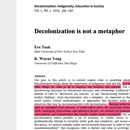When I became a citizen of the United States, I was forced to give up all ties to my native country. Despite being legally stripped of my title as Guatemalan, I will always remain attached to my country and bear national pride to my full capacity.
Perhaps you’ve heard of Guatemala being mentioned on TV shows or seen its name attached to artisanal products, but do you know anything about the country of “eternal spring”? Everytime I mention Guatemala as my country, I see blank expressions on people’s faces as they are trying to pinpoint it in their mental maps. While I understand that American education focuses on its own country, it’s baffling to me how often the burden that the US has put on other nations goes unnoticed. The fact that this nation and other Eurocentric nations can forget about the bloodshed they’ve contributed to speaks loudly of their privilege.
For example, did you know that to this day Guatemala is militarized by the US government? While it may seem good to some to gain “support” by the US military, the effects of this modern-day invasion have been vast. Not only have there been reports of abuse and mistreatment towards the current Guatemalan military, but this invasion has only caused more political uprisings within the country. Since the beginning of colonization, this white savior complex has affected my country greatly. What’s even worse is that the US government only “saves” us when they find it safe for themselves, and the only idea of help they find necessary is invasion. During our 36-year-long civil war, which began as a result of US involvement (surprised?), the US government seldom reported it’s involvement in the bloodshed and rarely offered political asylum to Guatemalans.
Because of the United States’ need for control and power, my country has suffered and our sacred soils have been marked with blood. While this is a form of oppression caused by the “system” we often forget how individuals are also an essential part of the mechanisms involved in the machinery of the “system.” The white savior complex extends further than invasion and control by the government. One common way that individuals become part of the oppressive system is by acting on ill-intentioned, miseducated, and temporary volunteerism. Many hold the idea that going to “help” other countries with their schools or churches is what the people need.
Well, as an individual who was born and raised in a “shithole country,” I can tell you that is not what we need. Sure, it makes you feel great to visit my beautiful nation and experience my culture, and while you may think you are helping by going for a month, you certainly are not. To us, your temporary aid represents the ideas of oppression and invasion. If anything, you hurt us more because our sense of hope diminishes every time you claim you come to help but leave when you’ve had enough. What we need is intentional and extensive help that does not infringe on our freedom. As Paulo Freire said in his book Pedagogy of the Oppressed:
“True generosity consists precisely in fighting to destroy the causes which nourish false charity. False charity constrains the fearful and subdued, the “rejects of life,” to extend their trembling hands. True generosity lies in striving so that these hands–whether of individuals or entire peoples–need be extended less and less in supplication, so that more and more they become human hands which work and, working, transform the world.”
In summary, if you want to help Guatemala and countries alike, you must first redefine your concepts on help and check your intentions.


